Otro ejemplo: Para facilitarle el aprendizaje de la tabla de multiplicar del 5, todos los números pares finalizan en cero y los números impares en cinco. Respecto a la tabla de multiplicar del 9, le añade un cero al segundo término y luego le restan el mismo número; de esta forma:
Este juego ha servido para que mi nieta comprenda la Matemáticas, y a la vez ha sido útil para que mi hija le enseñe de forma amorosa, y así compartan juntas, tal como lo hicieron mis padres conmigo. Pero también es cierto, que mi nieta ha creado sus propias estrategias de aprendizaje a partir de los insumos que ha recibido de m hija, pues va añadiendo o modificando elementos que le permiten una mejor comprensión de los contenidos. Por ejemplo, le asignan 10 operaciones de multiplicación de hasta tres dígitos, y estos ejercicios van acompañados de 11 resultados que están desordenados; siendo uno de los resultados un número falso. Ella debe realizar el procedimiento completo y los resultados le sirven para constatar que la operación está correcta; entonces mi nieta dice que está jugando el video juego “Among us”, que ese número incorrecto es el jugador falso del juego. Segura estoy que nunca lo va a olvidar.
Como siempre, no puedo abstraerme de analizar esta forma de enseñanza aprendizaje de la Matemáticas de mi nieta, a la luz de alguna teoría y viene a mi mente la Zona de Desarrollo Proximal o Próxima, propuesta por el psicólogo ruso Lev Vigotsky a partir del año 1931. Su premisa básica consiste en que
la Zona de Desarrollo Próximo (ZDP), es la distancia entre el nivel de desarrollo efectivo del individuo, es decir, aquello que es capaz de hacer por sí mismo, y el nivel de posible desarrollo o desarrollo potencial, que no es más que aquello que sería capaz de hacer con la ayuda de un adulto (padre, docente) o un compañero más capaz, que asuman el papel de mediador del aprendizaje; por lo cual la interacción sociocultural resulta indispensable para que se produzca el aprendizaje y por ende, se reduzca la ZDP y se alcance el potencial de desarrollo que para el momento tiene el individuo; ya que el aprendizaje en situaciones colectivas se produce más fácilmente y la interacción del aprendiz con los facilitadores, potencia este proceso. De allí que a mi nieta, gracias a la ayuda de mi hija, pueda aprender más fluidamente Matemáticas.
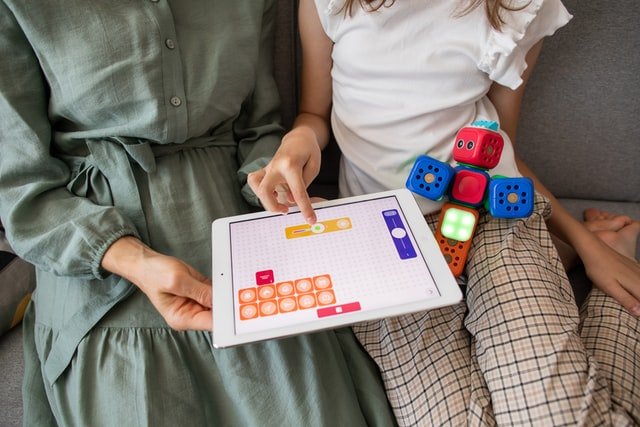 Photo by Robo Wunderkind on Unsplash
Photo by Robo Wunderkind on Unsplash
Por otra parte, el enfoque de la ZDP, señala que existen dos elementos básicos, que interactúan entre sí, y éstos son: la importancia del contexto social y la capacidad de imitación. El contexto social por tanto, debe ser rico en experiencias y situaciones que promuevan el desarrollo y aprendizaje y la capacidad de imitación del individuo (cuando mi hija acompaña a mi nieta a hacer sus tareas), proveer las herramientas para que la persona pueda copiar o adquirir los comportamientos y conductas que le lleven a lograr aprendizaje y desarrollo (estas serían las estrategias lúdicas que le enseña). De esta forma, ambos procesos (aprendizaje y desarrollo), son simultáneos e interactúan entre sí, debiendo ser el aprendizaje congruente con el nivel de desarrollo del individuo.
Como resultado de este proceso está la construcción del aprendizaje, la cual no se genera de manera mecánica, sino que intervienen las operaciones mentales requeridas para que el niño pueda interactuar con el entorno físico y social; tal como se produce cuando mi hija acompaña a mi nieta en su proceso de aprendizaje, y le va orientando.
Lev Vigotsky (1931) destacó el valor de la cultura y el contexto social, al expresar que:
El niño tiene la necesidad de actuar de manera eficaz y con independencia y de tener la capacidad para desarrollar un estado mental de funcionamiento superior cuando interacciona con la cultura (igual que cuando interacciona con otras personas). El niño tiene un papel activo en el proceso de aprendizaje pero no actúa solo. Aprende a pensar creando, a solas o con la ayuda de alguien, e interiorizando progresivamente versiones más adecuadas de las herramientas intelectuales que le presentan y le enseñan (p. 98).
Por tal razón, el aprendizaje puede darse en solitario, pero también en compañía, y es aquí en donde se hace más efectivo, el niño enriquece la comprensión de contenidos a través de la información o herramientas que le brinda el ente mediador, no obstante, será el niño, el aprendiz, quien adaptará o generará sus propias estrategias de aprendizaje.
Para finalizar sólo quiero decir: Es necesario que acompañen a sus niños en su proceso educativo, sin el apoyo, orientación e inspiración de sus padres o de sus cuidadores, difícilmente podrán tener éxito, además, son estos momentos escolares ideales para reforzar los lazos de amor y crear experiencias significativas que serán valiosas e inolvidables, pues como siempre digo la llave, la clave máxima de todo proceso de enseñanza aprendizaje es: EL AMOR.
Muchas gracias por haber leído mi post, que sé bien es algo extenso.
Espero les sea muy útil. Saludos y bendiciones.
 La imagen de presentación se encuentra disponible en el sitio web Unsplash.com y ha sido intervenida con la aplicación CANVA. El resto de las imágenes también están disponibles en Unsplash.com. Cada imagen tiene su respectiva fuente.
Me he documento y adquirido algunos conceptos, de la siguiente bibliografía:
La imagen de presentación se encuentra disponible en el sitio web Unsplash.com y ha sido intervenida con la aplicación CANVA. El resto de las imágenes también están disponibles en Unsplash.com. Cada imagen tiene su respectiva fuente.
Me he documento y adquirido algunos conceptos, de la siguiente bibliografía:
- Vigotsky, L. (2001). El Desarrollo de los Procesos Psicológicos Superiores. Madrid: Cegal.
La redacción de esta publicación es 100% ORIGINAL.
Este post es de mi autoría y propiedad, razón por la cual en caso de que su contenido sea referido en otra publicación, es INDISPENSABLE citar la fuente (Tarot911) y el link correspondiente. Gracias.
Para consultas privadas, puede escribir al correo: [email protected] o dirigirse a mi canal de Discord Tarot911#8370

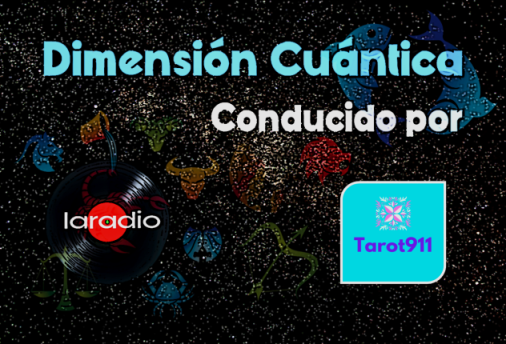
Ven a conocer el multiverso en el que vivimos, todos los jueves, a las 5:00 p.m. hora Venezuela en: DIMENSIÓN CUÁNTICA.
Un programa en el que haremos un recorrido por temas vinculados a la magia, lo paranormal, la astrología y la espiritualidad. Podrás encontrar tips astrológicos, tu horóscopo semanal y consultas exprés.
Presentado por @Tarot911, y sólo lo puedes disfrutar en el Discord de LaRadio.

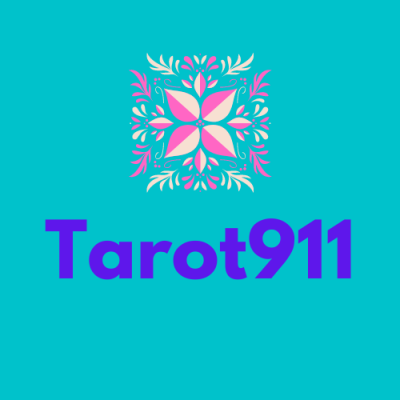 CommunityIIDiscord
CommunityIIDiscord
ENGLISH
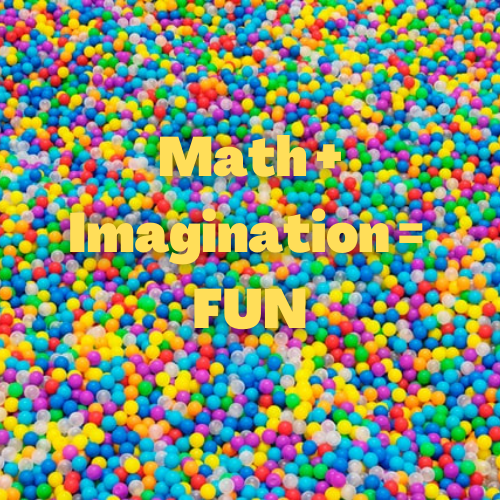 Photo by Duangphorn Wiriya on Unsplash
Photo by Duangphorn Wiriya on Unsplash
I have never characterized myself by understanding Mathematics. I had a really hard time understanding equations, formulas, and others. The only thing I do like is Geometry, I just love it, it fascinates me. While other content was easy to understand and learn, the world of numbers seemed especially difficult, which is why I tried and tried, but to be honest, I never reached the level of understanding that I wanted.
 Photo by Anh Nguyen on Unsplash
Photo by Anh Nguyen on Unsplash
When my daughter was born and grew up, I thought that perhaps she could have that same peculiarity; However, it surprised me when she was studying Mathematics, she understood all the contents, concepts, procedures in a simple way. She herself found other ways, shortcuts and ways to solve mathematical problems and equations, and she did this by playing, she even relied on toys and drawings to do it. In fact, on more than one occasion I had to go talk to one or another teacher because an evaluation was postponed because the girl did not conform to the specific procedure imposed on her; so I, with my limitations bordering on dyscalculia, had to reason with the teacher and explain that even if she had not adjusted to what they proposed as the only way to solve a mathematical question, their procedure was as valid as any other. I especially remember one day when I took her to a tutor to teach her Algebra and sat to watch as she accompanied her. The man began to explain to her on a huge blackboard a series of procedures related to polynomials, and after a while she stopped, asked permission politely, took the marker and corrected the explanation to the tutor in a logical and correct way! The man was surprised and accepted that it was so, that what she proposed was fine.
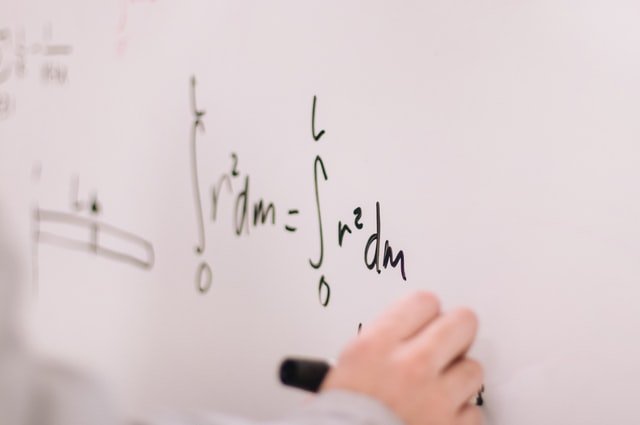 Photo by Jeswin Thomas on Unsplash
Photo by Jeswin Thomas on Unsplash
Then, as the years went by, my first granddaughter was born, and she showed the same difficulties that I have with respect to numbers, she just doesn't understand them. Obviously, the migration of my daughter with her family at a critical moment, in which my granddaughter was beginning the second grade of Primary Education, hampered the daily contact to help or support her in her educational process; So when my daughter told me that she could not find how to make my granddaughter understand mathematics, I told her to remember how she played with numbers as a child, and this clicked in her head; since she took that playful strategy created by herself which she had forgotten, and taught it to her daughter.
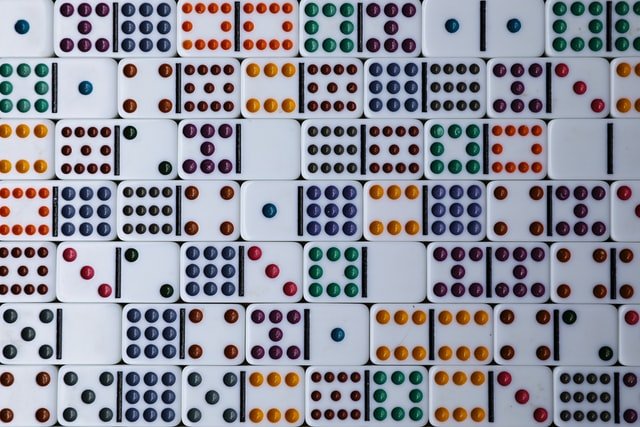 Photo by Mick Haupt on Unsplash
Photo by Mick Haupt on Unsplash
I am going to give you an example of how she teaches multi-digit multiplication: In Portugal, the way the teacher explains it is that she adds a zero to the figures, (this is her way of explaining them). So when my daughter helps her with her homework, she tells her that the positions of the numbers (unit, ten and hundred) correspond to three kingdoms, one kingdom is each decimal position:
- In the First Kingdom, that of Units, it is bankrupt, there is no money, so they do not pay the Royal Guardian.
- In the Second Kingdom, that of the Tens, the Royal Treasury has a little more funds, so they pay a single Royal Guardian.
- In the Third Kingdom, the Kingdom of Hundreds, the Royal Treasury does have cash, so they pay two Royal Guards ... and so on.
- So that my granddaughter does not confuse these additional zeros that the teacher indicates she must include in the mathematical operation with some other zero of the result, my daughter tells her to pass a line; so my granddaughter says that this line is the Royal Guard's spear, hahahaha… and that's how she understands.
 Photo by Aldo De La Paz on Unsplash
Photo by Aldo De La Paz on Unsplash
Another example: To make it easier for she to learn the multiplication table of 5, all even numbers end in zero and odd numbers end in five. Regarding the multiplication table of 9, she adds a zero to the second term and then she subtract the same number; thus:
9 x 8 = (80 – 8) = 72
This game has helped my granddaughter understand Mathematics, and at the same time it has been useful for my daughter to teach her in a loving way, and thus share together, just as my parents did with me. But it is also true that my granddaughter has created her own learning strategies from the inputs she has received from my daughter, as she adds or modifies elements that allow her to better understand the contents. For example, you are assigned 10 multiplication operations of up to three digits, and these exercises are accompanied by 11 results that are out of order; one of the results being a false number. She must perform the entire procedure and the results serve to verify that the operation is correct; So my granddaughter says that she is playing the video game “Among us”, that the wrong number is the fake player of the game. I am sure that he will never forget it.
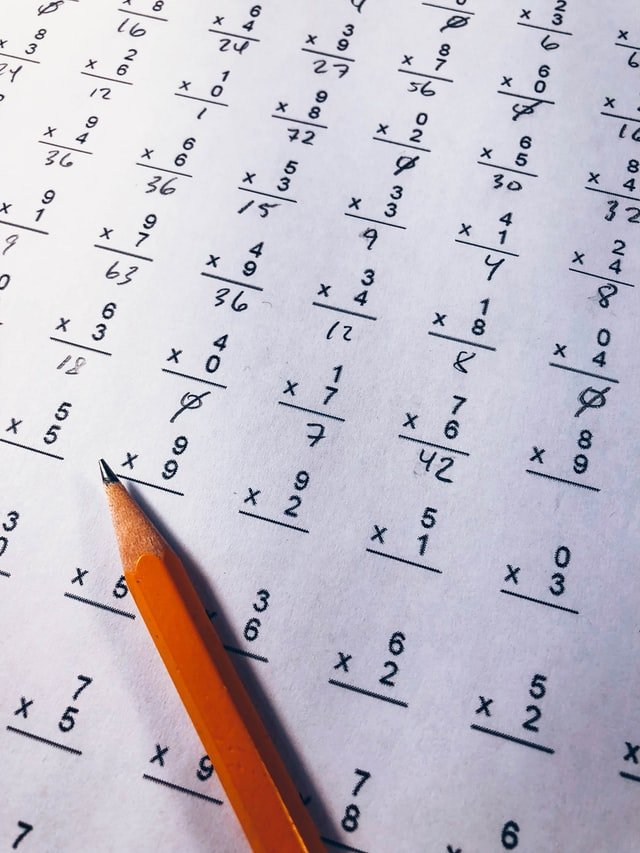 Photo by Chris Liverani on Unsplash
Photo by Chris Liverani on Unsplash
As always, I cannot abstract myself from analyzing this form of teaching and learning of my granddaughter's Mathematics, in the light of some theory and the Proximal or Proximate Development Zone comes to mind, proposed by the Russian psychologist Lev Vigotsky from the year 1931. Its basic premise is that the Zone of Proximate Development (ZPD), is the distance between the level of effective development of the individual, that is, what he is capable of doing by himself, and the level of possible development or potential development, which is nothing more than what they would be able to do with the help of an adult (parent, teacher) or a more capable partner, who assumes the role of mediator of learning; therefore, sociocultural interaction is essential for learning to occur and therefore, the ZPD is reduced and the development potential that the individual has for the moment is reached; since learning in collective situations occurs more easily and the interaction of the learner with the facilitators enhances this process. Hence, my granddaughter, thanks to the help of my daughter, can learn more fluently Mathematics
 Photo by Robo Wunderkind on Unsplash
Photo by Robo Wunderkind on Unsplash
On the other hand, the ZPD approach indicates that there are two basic elements that interact with each other, and these are: the importance of the social context and the capacity for imitation. Therefore, the social context must be rich in experiences and situations that promote development and learning and the individual's capacity for imitation (when my daughter accompanies my granddaughter to do her homework), provide the tools so that the person can copy or acquire the behaviors and conducts that lead him to achieve learning and development (these would be the playful strategies that he teaches). In this way, both processes (learning and development) are simultaneous and interact with each other, and learning must be congruent with the individual's level of development.
As a result of this process is the construction of learning, which is not generated mechanically, but involves the mental operations required for the child to interact with the physical and social environment; just as it occurs when my daughter accompanies my granddaughter in her learning process, and guides her.
Lev Vigotsky (1931) highlighted the value of culture and social context, stating that:
The child has the need to act effectively and independently and to have the ability to develop a higher functioning state of mind when interacting with culture (just as when interacting with other people). The child has an active role in the learning process but does not act alone. He learns to think by creating, alone or with the help of someone, and progressively internalizing more appropriate versions of the intellectual tools that are presented and taught to him. (p. 98)
For this reason, learning can take place alone, but also in company, and it is here where it becomes more effective, the child enriches the understanding of content through the information or tools provided by the mediator, however, it will be the child, the learner, who will adapt or generate their own learning strategies.
To conclude, I just want to say: It is necessary that you accompany your children in their educational process, without the support, guidance and inspiration of their parents or caregivers, it will be difficult for them to be successful, in addition, these are the ideal school moments to reinforce the ties of love and create meaningful experiences that will be valuable and unforgettable, because as I always say the key, the maximum key to any teaching-learning process is: LOVE.
Thank you very much for reading my post, which I know is quite extensive.
I hope it is very useful to you. Greetings and blessings.
Thank you very much for reading my post, which I know is very extensive. I hope it is very useful to you. Greetings and blessings.
The presentation image is available on the website Unsplash.com and has been intervened with the CANVA application. The rest of the images are also available on Unsplash.com. Each image has its respective source.
I have documented and acquired some concepts, from the following bibliography:
- Vigotsky, L. (2001). The development of higher psychological processes. Madrid: Cegal.
The wording of this publication is 100% ORIGINAL.
This post is my authorship and property, which is why in the event that its content is referred to in another publication, it is ESSENTIAL to cite the source (Tarot911) and the corresponding link. Thank you.
For private inquiries, you can write to the mail: [email protected] or contact the Discord: Tarot911#8370


Come discover the multiverse in which we live, every Thursday at 5:00 p.m. Venezuela time in: QUANTUM DIMENSION.
A program in which we will take a tour of topics related to magic, the paranormal, astrology and spirituality. You can find astrological tips, your weekly horoscope and express consultations.
Presented by @ Tarot911, and you can only enjoy it on LaRadio's Discord.

 CommunityIIDiscord
CommunityIIDiscord
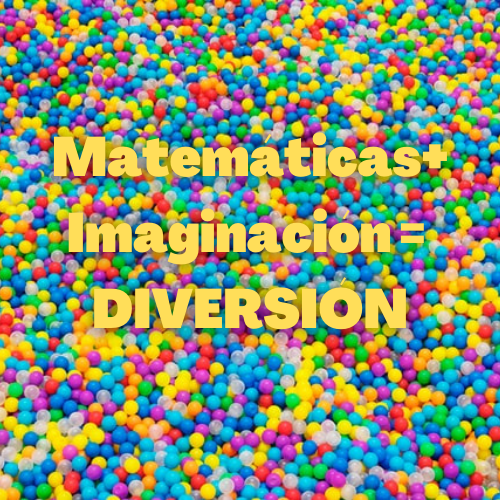
























Excelente, pienso que cuando las matematicas se hacen divertidas para los niños el aprendizaje es mas sencillo.
Ohhh, claro que sí, y también se hacen significativas, porque existe una vinculación de lo intelectual con lo emotivo, lo cual es sumamente valioso e indeleble. Gracias por pasar a leer y comentar. Saludos y bendiciones.
Jugar es una excelente estrategia para enseñarles y que es tan importante la comprension de la matemática pues yo que le huí por mucho tiempo a la matematica me ha tocado hacerle frente por mi trabajo y bueno todo un desafio...Aunque superado me gusto mucho este post.
Pues te felicito que hayas podido superar el poquito de rechazo que hayas tenido hacia la Matemáticas. En mi caso es que tengo limitaciones para entenderla, porque hay otras cosas que para mí son muy sencillas, pero los números, ecuaciones, polinomios y demás son incompresibles para mí. Gracias por pasar a leer, votar y comentar. Saludos y bendiciones.
!ENGAGE 10
ENGAGEtokens.Buena información @tarot911, trataré de estar pendiente con mi nieto. Algo similar pasó con las matemáticas y mi vida.
Me parece genial que estés pendiente de tu nieto. Para mí fue tétrico el comprender Matemáticas y eso que mis padres fueron pacientes conmigo. Afortunadamente mi hija no tuvo estas limitaciones, y mi nieta creo que las tiene pero en menor medida, y poco a poco irá superándolas. Gracias por pasar a leer y comentar. Saludos y bendiciones.
Demasiado bueno este post @tarot911, también fui muy torpe para los números, recuerdo que mi acción era aprenderme los procedimientos de memoria, cuando los ejercicios tenían diferentes procedimientos mi actuación era: si me sale un ejercicio así, debo hacer esto, si es otro debo aplicar este otro. Dígame las estadísticas y con esto de los mercados cripto algo se debe entender de ella. En cuanto a los profesores también defendía que hay muchos caminos para llegar a un resultado y a mis pequeños pupilos les aceptaba sus procesos así tardara más en revisar.
Saludos
Pues me contenta mucho que te haya parecido bueno mi post, el cual hice a partir de los comentarios que me hizo mi hija la semana pasada, luego de cambiar la estrategia para enseñarle Matemáticas a mi nieta. Yo hacía igual, me aprendía los procedimientos de memoria, lo cual no suelo hacer, era lo único que me "caletreaba" como dicen coloquialmente, pues realmente no lo entendía; incluso, para poder sacar la confiabilidad de mi Tesis de Grado, tuve que aprender a calcular el coeficiente Alfa de Chronbach pues era lo único que me servía para obtener la confiabilidad del estudio; y tuve que enfrascarme 15 días, unas 5 horas diarias hasta comprender el procedimiento y aplicarlo con éxito. Gracias por pasar a leer, comentar, votar y rebloguear. Saludos y bendiciones.
!ENGAGE 25
ENGAGEtokens.Nada mejor que los juegos para enseñar matemáticas, la verdad que la explicación y el recorrido que aportaste es muy claro además que todos no aprendemos al mismo ritmo.
A mi también se me dificultaba las matemáticas, ya a nivel universitario me tocó un profesor que me hizo enamorarme de ellas o por lo menos entender los diferentes caminos que hay para llegar al mismo resultado, eso fue extraordinario aprendizaje. @tarot911
Buenísimo este post, muy util
Pues me alegro le parezca útil. La idea es que sirva de orientación y guía para los padres y tutores que tienen esta misma situación educativa. Gracias por pasar a leer y comentar. Saludos y bendiciones.
Gracias súper @sacra97 por tu apreciación. He querido mostrar a través de mis experiencias personales y las de mi familia directa, cómo el aprendizaje puede ser algo realmente bello, hermoso, valioso y muy útil tanto para el crecimiento intelectual de nuestros niños, como también para afianzar los afectos. Aunque tuve buenos profesores, lamentablemente en Matemáticas y Cálculo nunca me conseguí con alguno que me hiciera amar esta rama tan importante del conocimiento humano, jajajaja. Gracias por pasar a leer y comentar. Saludos y bendiciones.
!ENGAGE 20
ENGAGEtokens.Este post está excelente!!! Me encantó 😊
Hace unos años tuve la oportunidad de participar en un taller sobre aprendizaje, y me sorprendió mucho en ese entonces que todas las estrategias que nos enseñaron era a través de juegos, aún cuando el público era de puros adultos. Eso me pareció muy interesante, más aún, comprobar que en efecto esas estrategias lúdicas eran realmente efectivas, de allí me quedó la enseñanza de que es posible "aprender jugando".
Que bonita la experiencia de tu hija y tú nieta con las matemáticas.
Un abrazo 🤗
!ENGAGE 25
ENGAGEtokens.Me ha encantado este post! Incluso aprendi una forma nueva de multiplicar.
También me alegro, que tengan formas tan creativas y pacientes de enseñar a tu nieta. Eso hara la diferencia entre que le guste o no las matematicas (lo mismo seria con cualquier otra materia).
A mi siempre me han encantado, se me dan, pero se que hay mucha gente a la que no y ver que hay posibilidades de enseñar fuera de lo "normal" me parece maravilloso.
Excelente post!
!ENGAGE 25
ENGAGEtokens.Estupendísimo artículo como siempre, Fedora! Me encanta que le hayas permitido a tu chama explorar su propia educación a su manera, y que estuvieses de su parte ante la autoridad docente, muchos niños no cuentan con ese tipo de apoyo, y es muy, muy importante. Yo estoy convencido de que nosotros los adultos tenemos mucho más qué aprender de los niños que ellos de nosotros, y la única forma de aprovechar eso, es dejándolos ser y vivir con tanta libertad como puedan, para que puedan usar su imaginación plentamente. Bendiciones elevadísimas para ti y tu familia!
ComunidadIIDiscordTu artículo ha sido seleccionado por @drrune para el proyecto de curaduría de Natural Medicine. Apoyamos el contenido en español, especialmente enfocado en salud mental y física, reflexión, arte, cocina, plantas y espiritualidad.
Ohhh Javier, muchas gracias por tu comentario. Tengo la suerte de contar con una hija muy especial, muy hermosa y además muy inteligente. Traté de respetar su forma de aprender y comprender el mundo, porque así me criaron a mí, mis padres respetaron esa parte de mi crianza; y sé bien que a veces, quizás sin querer, los docentes se ponen estrictos e intransigentes; de allí que tenía que darle todo mi apoyo. Mil gracias por tus bendiciones, ¡que así sea! Para tí también mil bendiciones. Un abrazo.
excelente a mi de pequeño no me gustaban las matematicas ni en la segundaria despues fui a la universidad y no se porque me llamo tanto la atencion de estudiar ing.en telecomunicaciones el primer semestre fui muy dificil adaptarme pero despues le agarre amor a las ecuaciones matematicas y todo el mundo de las ondas frecuencias redes binario dios tantas cosas que puede aprender que hoy en dia me pregunto porque si no me gustaban ahora es mi vida dia tras dia y lo mejor es que me gusta.
Bueno, al menos le has tomado amor. Yo tengo limitaciones cognitivas que me dificultan mucho comprenderlas. Me parece genial que te gusten las Matemáticas, intuyo que debe ser realmente bella, sino Tesla, Einstein, Planck, Bhörn y tantos otros físicos no les hubiese agradado esta ciencia. Gracias por pasar a comentar y a leer. Saludos y bendiciones.